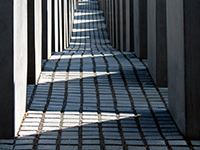In 1915, during World War I, the declining Ottoman Empire carried out an extended campaign of genocide against the Ottoman Armenians. From massacres to death marches, 1.5 million of the Armenian population were exterminated.
The Holocaust, in which six million European Jews were exterminated as part of what the Nazis called the ‘Final Solution of the Jewish Question,’ was perpetrated during World War II. Over the last forty years, the memorialisation of the Holocaust has become a distinct aspect of Western culture, encompassing reparations, museums, memorials and documentaries, and even legislation criminalising its denial.
However, there is no comparable culture of memorialisation of the Armenian genocide. In fact, that genocide has been subjected to a vigorous campaign of denial led by the Republic of Turkey, and by a marked reluctance of worldwide governments and parliaments to recognise its existence formally. Only recently (from 2016–2019), have parliaments in the US, the Netherlands and Germany recognised the Armenian genocide, yet others, such as those of Israel and the UK, continue to reject such recognition.
What drives these divergent trends in Holocaust and Armenian genocide memory? And why is there such a significant difference in the way in which these two genocides have been represented in the public, political and international arena by the perpetrators, victims and third-party countries? Eldad Ben Aharon presents answers and causes and concludes with recommendations for current domestic and foreign policy.
